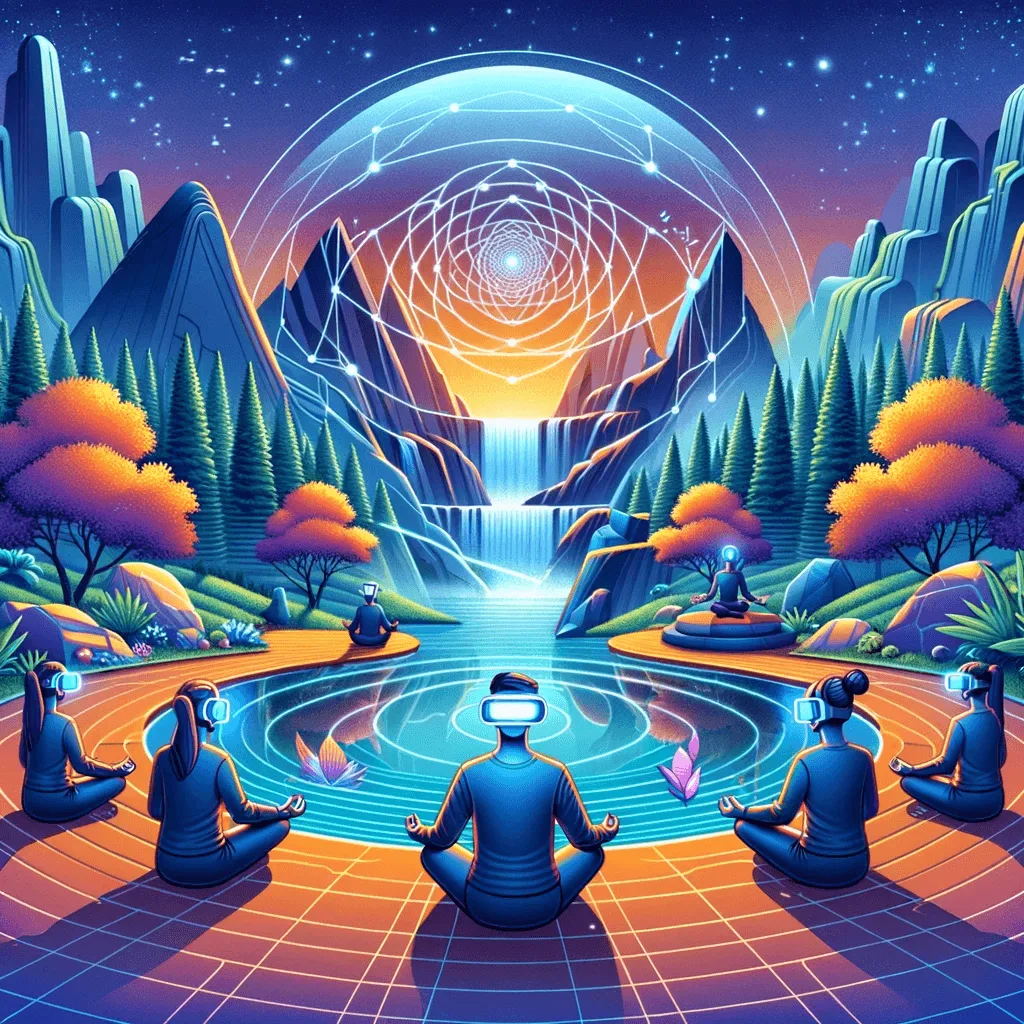
Mindfulness Meditation
As the world hurtles into the digital age, the 21st century presents a unique set of challenges. Amidst the cacophony of notifications, the relentless pace of information, and the blurring boundaries between work and rest, the need for grounding practices like mindfulness meditation has never been more pronounced.
article by Hina Kurosawa
The Modern Mind: A Constant Buzz
The modern individual is inundated with information. From 24/7 news cycles to social media updates, our brains are constantly processing, leading to a state of perpetual mental fatigue. This continuous engagement often leaves little room for introspection and self-awareness.
Enter Mindfulness: A Beacon Of Balance
Mindfulness meditation offers a counter-narrative to the 21st-century rush. At its core, it emphasizes being fully present, allowing individuals to engage deeply with the current moment. It's an invitation to step back from the barrage of external stimuli and tune into one's internal landscape.

Scientific Backing: More than Just A Trend
Contemporary research has bolstered the claims of mindfulness proponents. Neuroimaging studies have revealed that regular mindfulness practice can lead to increased activity in regions associated with attention, emotional regulation, and decision-making. Furthermore, it's been linked to reductions in stress hormones, showcasing its tangible impact on well-being.
Beyond The Meditation Cushion
Corporations, recognizing the benefits, have started incorporating mindfulness programs. These initiatives aim at boosting employee well-being, enhancing productivity, and fostering a positive work environment.
Educational Embrace
Schools and universities are introducing mindfulness curricula, understanding its potential in enhancing student focus, reducing anxiety, and improving emotional intelligence.

Challenges & Critiques: Not Without Nuance
As with any trend, the commercialization of mindfulness has raised concerns. Purists argue that its essence is often diluted in mainstream adaptations. There's a growing debate around ensuring that the practice remains rooted in authenticity.
The Road Ahead: Mindfulness In A Post-Digital World
As the world continues to evolve, so will the practice of mindfulness meditation. There's a burgeoning interest in virtual meditation retreats, augmented reality mindfulness apps, and other tech-driven adaptations. While these innovations offer accessibility, the challenge lies in ensuring they retain the essence of the practice.

Mindfulness meditation, though ancient, finds profound relevance in the 21st century. It stands as a testament to the timeless nature of human needs – the quest for balance, clarity, and inner peace. As the century unfolds, mindfulness offers a compass, guiding individuals through the intricate maze of modern existence.
Published: 10/31/2023
Modified: 10/31/2023
More predictions
Come back here soon to learn more about yourself and your future


7 Remarkable Meditation Revelations
The realm of meditation is vast, with facets that continually surprise and enlighten even seasoned practitioners. As more people delve into its depths, its myriad benefits and revelations will continue to inspire and transform lives.


5 Captivating Insights About Meditation
Meditation isn't just a mental exercise; it has tangible effects on the brain's structure. Neuroscientists have discovered that consistent meditation can lead to increased thickness in parts of the brain related to attention and sensory processing. Furthermore, areas associated with stress and anxiety, like the amygdala, tend to shrink with regular meditation. This physical change in the brain underscores the profound impact meditation can have on cognition and emotional well-being.


How Meditation Enhances Health
Meditation, once viewed as a spiritual practice exclusive to certain cultures, has now gained widespread recognition in the scientific community for its profound impact on health. Over the past few decades, numerous studies have delved into understanding the physiological and psychological effects of meditation.